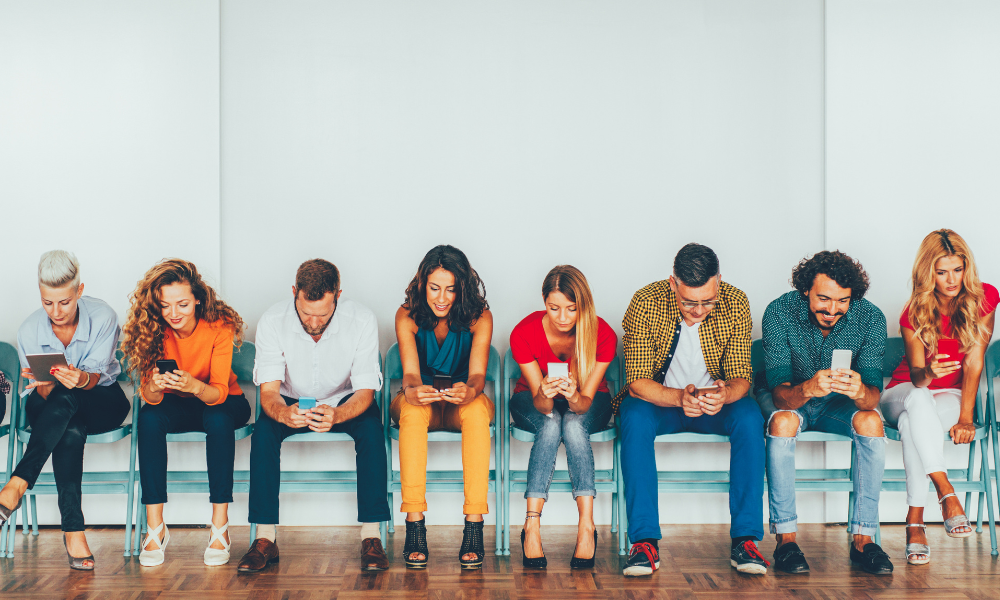Why Social Media Is Bad For Your Health

In today's digital age, social media has become an integral part of our lives.
It connects us with friends, family, and the world at large, providing a platform to share our thoughts, experiences, and even our daily routines.
However, while it offers numerous benefits, there is a growing concern about its negative impact on our mental and physical well-being.
In this article, we'll delve into the reasons why excessive use of social media can be bad for your health.
Social media was initially designed to bring people closer together, regardless of geographical distances.
However, over time, its impact on mental health has raised several red flags.
The ease of access, constant notifications, and the addictive nature of these platforms can lead to a host of health problems.
Comparison to Real-Life Connections
Although social media connects people digitally, it often lacks the depth and authenticity of real-life interactions.
Physical presence provides emotional cues that online communication cannot replicate, leading to a sense of loneliness and isolation.
The Perils of Perfection
Social media tends to showcase idealized versions of people's lives, leading to unrealistic comparisons and feelings of inadequacy.
The pressure to present a flawless image can contribute to anxiety and depression.
The Dopamine Dilemma
Receiving likes, comments, and shares trigger the release of dopamine, the "feel-good" neurotransmitter.
This reward system can lead to addiction-like behaviors, as individuals constantly seek validation online.
Cyberbullying and Mental Health
The anonymity provided by the internet can embolden individuals to engage in cyberbullying, resulting in severe emotional distress for victims.
Constant exposure to negativity can contribute to mental health issues.
Fear of Missing Out (FOMO)
Social media often portrays the highlights of people's lives, leading to the fear of missing out.
This FOMO can cause anxiety and a constant need to stay updated, preventing individuals from fully enjoying the present.
Sleep Deprivation and Screen Time
Excessive use of social media, especially before bedtime, can disrupt sleep patterns.
The blue light emitted by screens interferes with the production of melatonin, making it harder to fall asleep.
Social Media's Influence on Body Image
The prevalence of edited and filtered images on social media skews perceptions of body image.
Constant exposure to unrealistic beauty standards can lead to body dissatisfaction and eating disorders.
Privacy Concerns and Anxiety
Worries about online privacy and data breaches contribute to anxiety.
The feeling of being constantly monitored or manipulated can take a toll on mental well-being.
Online Trolls and Psychological Impact
Online trolls and hate speech can have profound psychological effects on individuals.
The constant threat of harassment can lead to stress, anxiety, and even withdrawal from online platforms.
Reduced Attention Span
The fast-paced nature of social media content can lead to reduced attention spans.
This can impact an individual's ability to focus on tasks that require prolonged concentration.
Impact on Productivity
Excessive time spent on social media can hinder productivity.
The constant interruptions and multitasking can lower overall work efficiency.
Social Media Addiction
The addictive nature of social media can lead to neglecting real-world responsibilities.
The compulsion to check notifications and updates can result in a cycle of procrastination.
Addressing the Issue
To mitigate the negative effects of social media, it's essential to set boundaries.
Limit screen time, engage in offline activities, and prioritize face-to-face interactions.
Additionally, practicing mindfulness and seeking professional help when needed can contribute to improved mental health.
Conclusion
While social media offers connectivity and entertainment, its detrimental impact on mental and physical health cannot be ignored.
By recognizing the negative aspects and taking proactive measures, individuals can strike a healthier balance between their online and offline lives.
FAQs
Is all social media harmful to health?
Not inherently. It's the excessive and addictive use that poses health risks.
Can social media improve mental health too?
In some cases, it can provide a sense of community and support, but it's crucial to use it mindfully.
How can I reduce social media-related anxiety?
Setting time limits, unfollowing negative accounts, and seeking professional help are effective strategies.
What is the first step to overcoming social media addiction?
Acknowledging the issue and creating a plan to gradually decrease usage.
Are there any age restrictions for using social media?
Most platforms have age restrictions, but parental guidance is important regardless of age.
